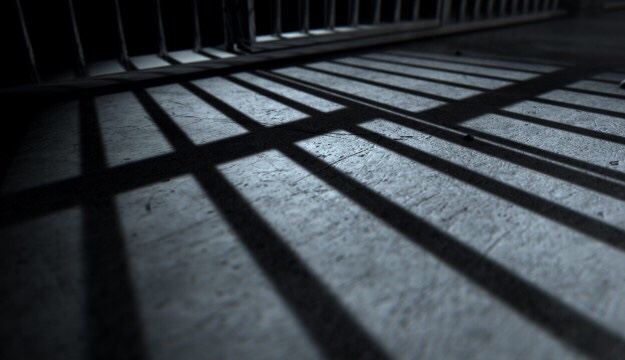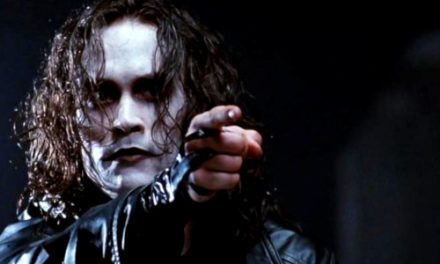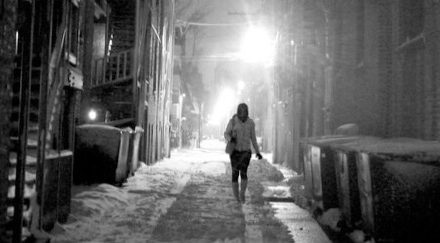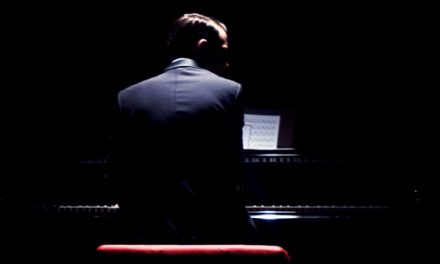Growing up on the wrong side of the tracks didn’t guarantee a rap sheet by the age of ten, but the odds were certainly stacked against Clarence. Sure enough, a few bad decisions and worse associations later, he found himself with his third strike before he turned twenty.
Prison isn’t a nice place by any stretch, and the jungle environment, with its own rules and social norms completely alien to those outside, break many who are forced into its depths. Always physically imposing, Clarence spent much of his time with strength training, as much for something to do as for personal defense. It wasn’t until he was twenty-three when a new cellmate suggested he try to expand his mind as well, and the advice finally managed to get through to him.
There’s a lot of bunk when it comes to “Eastern Philosophy,” mysticism and spirituality that doesn’t make much sense in context of the western world, let alone within the reinforced concrete walls of a federal penitentiary. Within the books however, he started to piece together some truths and mantras that, slightly altered, were perfectly applicable to his incarceration. Hungrily, he began to read more philosophy, complimenting his physical workouts with asking spiritual questions about the world and existence as a whole.
He had served seven years of his latest stretch when an epiphany struck him – from a dead sleep to wide awake, his mind racing with the energy of a new discovery, one that had been rolling around in his subconscious for who knows how long. Some cons, particularly the old timers, said that prison was only a punishment if one let it be – it was just a different environment, one with unique rules surely, but no stranger than many others. In that sweat-drenched, sleepless moment of palpable realization, he finally understood what they meant.
The walls, the guards, the routine – all were the trappings of a place, the window dressings. Where prison really existed was in the mind – if one believed they were trapped, that thought would weigh down and erode any hope of positive change. They’d be so focused on trying to define the limits of their environment that they’d lose sight of their own abilities, their own personality.
In that instant, Clarence no less made a choice than he did to wake up every morning – the choice was made for him, and he finally realized and embraced the path that lay before him. The prison was only a jail for his body, not his mind or his soul. He was free, so long as he wanted to be, so long as he held on to the important truth that nobody, save his own misguided or errant thoughts, could limit his mind.
Not long afterward, during an extended stretch where Clarence’s entire attitude had changed – he was no longer angry or spiteful, but rather calm and in control of himself – he received a letter from someone he didn’t know, a “Mr. Chaise.”
It would be easy for others to dismiss Clarence’s newfound passive approach to prison as weakness or madness, isolation finally breaking him, but his dispassionate view stemmed rather from a keen understanding that the physical, the visceral, was only a small part of reality, and that the mental, the spiritual, had so much more to offer than he ever expected.
The first letter read: “what will be, will be.” A small, strange koan that seemed out of place for the cloistered environment. Clarence found deep meaning within those five words, and thought about them often. Knowing one’s limits, and the arbitrary ones self-imposed that had no bearing on reality, was an important part of his spiritual journey, his newfound understanding of the world, and in that came an acceptance that no one could control the future, no more than one could control the past. Only by living in the present, not by fretting about what would or would not be, could one fully realize their own potential.
Clarence started receiving more letters from Mr. Chaise, each subtly urging him to explore further, deeper, and encouraging him to define his own truth, to understand more fully the world of possibility that surrounded him in the physically tiny five-by-seven cell that had been his home.
Two years later, without a single blemish on his conduct report, and a visible change of outlook from the fiery youth who had entered prison, Clarence was granted parole.He knew little about Mr. Chaise, other than his return address was in a small suburb of the city, known for its dilapidated industrial zoning and long-vacant buildings.
Little more in his possession than a bus ticket and twenty dollars, Clarence set out to meet the man who had been so instrumental in furthering his own spiritual enlightenment.
Suggested Tradition: Akashic Brotherhood
Suggested Spheres: Mind, Spirit, Correspondence
















